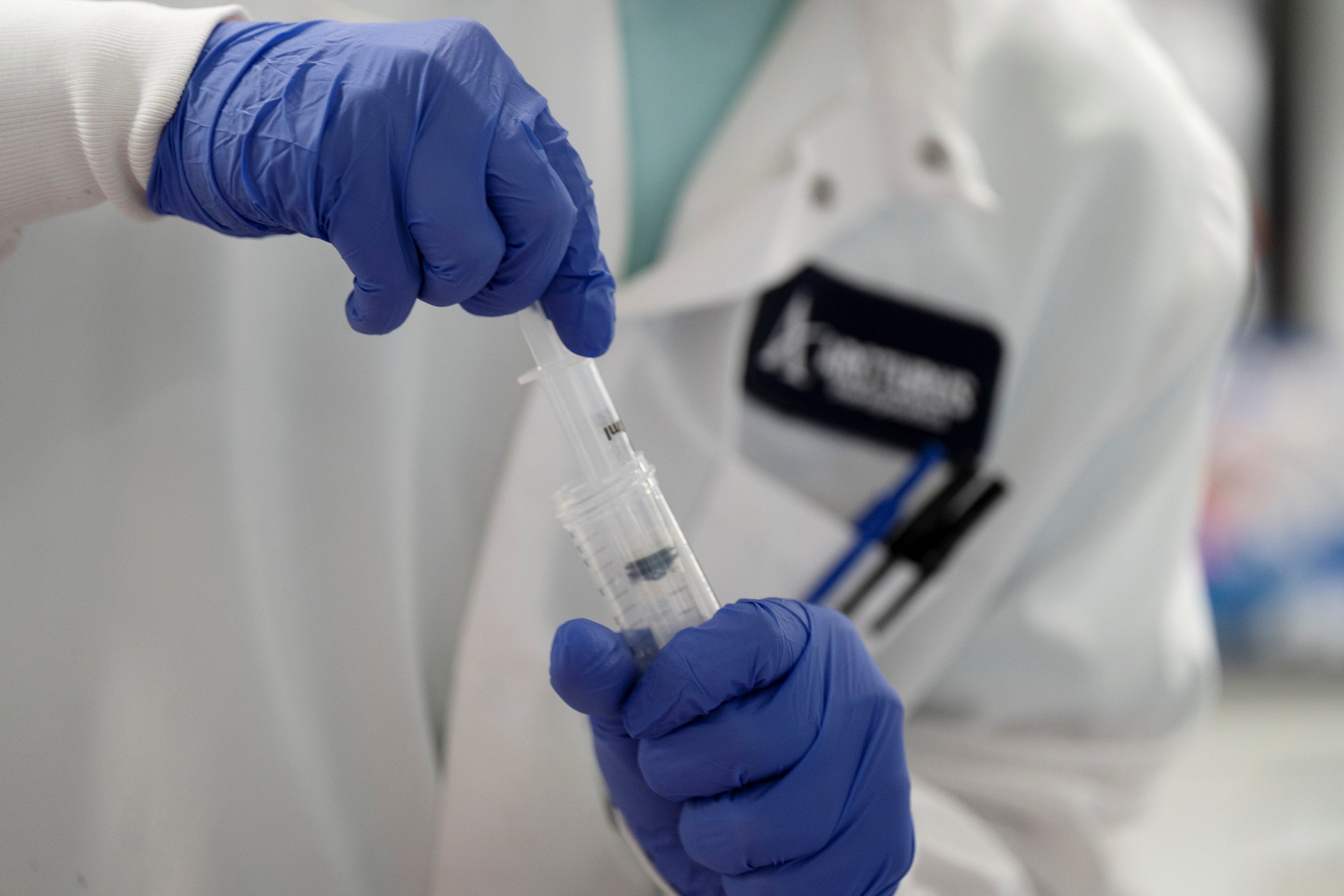Coronavirus: Vaccine hopes given boost as researcher says virus not mutating
Veteran coronavirus research team finds vaccine will likely work for most people

Your support helps us to tell the story
From reproductive rights to climate change to Big Tech, The Independent is on the ground when the story is developing. Whether it's investigating the financials of Elon Musk's pro-Trump PAC or producing our latest documentary, 'The A Word', which shines a light on the American women fighting for reproductive rights, we know how important it is to parse out the facts from the messaging.
At such a critical moment in US history, we need reporters on the ground. Your donation allows us to keep sending journalists to speak to both sides of the story.
The Independent is trusted by Americans across the entire political spectrum. And unlike many other quality news outlets, we choose not to lock Americans out of our reporting and analysis with paywalls. We believe quality journalism should be available to everyone, paid for by those who can afford it.
Your support makes all the difference.Researchers studying the strain of coronavirus wreaking havoc across the world have found that it is not mutating at a level that would make it significantly more deadly.
The findings by a veteran coronavirus research team have raised hopes that when a vaccine is eventually discovered for Covid-19, it will be effective for most people.
“When you look at the sequences that are available from around the world, what you’re finding is that you’re not getting a dominant mutation,” said Dr Vineet Menachery, a virologist at the University of Texas Medical Branch, in an interview with The Independent.
“The good news is that because it’s not changing appreciably, we could reasonably argue that vaccines would work against most of the strains out there,” he added.
Dr Menachery has been studying coronaviruses for 10 years, including work on the SARS virus. Much of his research has focused on the interaction between viruses and the host immune system. He has also studied the threat of bat viruses and what makes them transmit to humans.
His team’s research may be crucial in better understanding the deadly coronavirus outbreak as it continues to spread.
The World Health Organisation (WHO) says at least 20 coronavirus vaccines are being developed around the world. The first human trials have already begun in Seattle, led by the Boston-based biotech firm Moderna.
Although the speed with which the vaccine went to trial is almost unprecedented, experts say it could still take about 18 months for any potential vaccine to become available to the general public.
According to Dr Menachery, some viruses can develop resistance to drugs and vaccines intended to treat it. But the early findings of this research suggest that is not happening quickly enough to increase the deadliness of the coronavirus. “That’s good news,” he said.
“That doesn’t mean it can’t happen, but if we can develop either drugs or vaccines, they likely will work for the vast majority of people for the vast majority of time,” he said.
Despite working on coronavirus research since 2010, Dr Menachery said the scale of the current outbreak took him by surprise.
“I don’t know I would have predicted the size and scope of this. I would have expected it to be on a smaller scale, something like the original SARS outbreak, which was 8,000 people. It was a significant outbreak at the time,” he said.
“This was surprising in how transmissible it was and how quickly it spread. We’re looking at approaching over half a million cases here in less than three months.”
The total number of coronavirus infections worldwide has likely already passed that number. The current number of confirmed infections stands at around 450,000, but many people are thought to have contracted it without being tested.
The US is fast becoming a new epicentre of the outbreak. Nationwide, about 60,000 people have been diagnosed with Covid-19, the respiratory disease caused by the virus that is particularly perilous to the elderly and people with pre-existing medical conditions, with at least 812 deaths.
Subscribe to Independent Premium to bookmark this article
Want to bookmark your favourite articles and stories to read or reference later? Start your Independent Premium subscription today.
Join our commenting forum
Join thought-provoking conversations, follow other Independent readers and see their replies
Comments